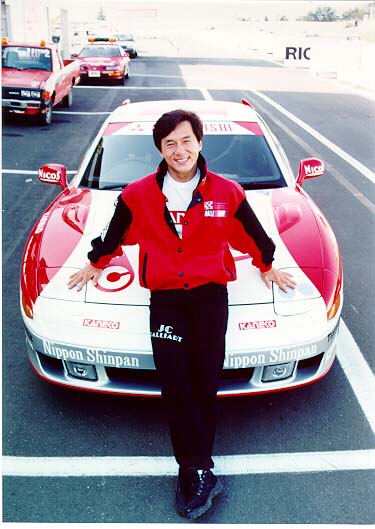
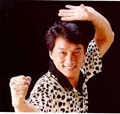
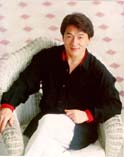
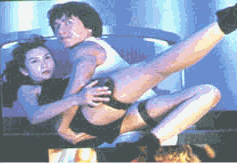
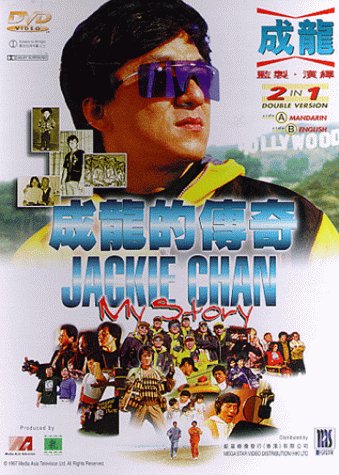
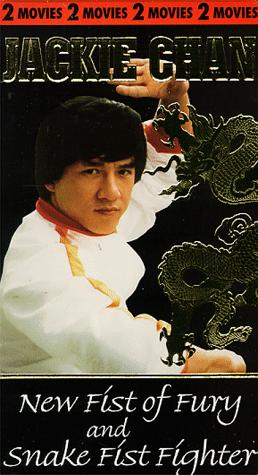
|
|
The boy who would become Jackie Chan was born April 7, 1954 with the name Chan Kong-sang in Hong Kong. Compared to many other mainland refugees (as a result of China's Communist revolution), the Chan family had it fairly easy. His parents worked for the French ambassador; his father as a cook, his mother as a maid.
Early on, Chan displayed his trademark energy. His parents nicknamed him "Pao-Pao" (cannonball) because he was always rolling around. However, this energy also got him into much trouble. Young Kong-sang was never good at school, and he was always getting into fights using the martial arts training his father gave him (which would result in his father's punishments -- something that Chan would explore in the Drunken Master films). Deciding he had too much free time on his hands, Chan's father enrolled the boy in the China Drama Academy.
Chan would spend the next ten years of his life at the academy, taking the name Yuen Lo -- all of the students took the surname "Yuen." Chan would awake at the crack of dawn and train until dusk under the guise of the tough Master Yu Jim-yuen, who would dish out severe punishment just as soon (or even quicker) as he would praise. Chan also faced hardships from his "big brothers" (older students). The toughest of these students, Yuen Lung, would come to work with Chan on some of his most notable films -- under the name Sammo Hung. Several other notable Hong Kong stars came out of the academy, including the last of the "three brothers" Yuen Biao.
As time wore on, it was becoming apparent that fewer people were going to see the opera, and more were going to the cinema. In order to support the school, Master Yu allowed some of his older students to work on films full-time, mostly as stuntmen and extras in generic kung-fu films. After a few years, Chan decided to strike out on his own as a stuntman, much to his family's dismay.
In order to keep his family happy, he lied and said he had a contract with a studio, when, in reality, he was living from paycheck to paycheck, working on small films or putting on opera exhibitions. Eventually, Chan found semi-regular work at the prestigious Shaw Bros. studio as a "junior boy" (basically a glorified extra). Chan started hanging around the stuntmen and impressed them enough that he began doing stunt work on films, often without the aid of wires or nets, because many directors wanted to reduce the costs on the film.
When Chan began to make some real money, the boy who grew up in relative poverty, started to spend it like a rich man, delving heavily into drinking and gambling. His fellow stuntmen dubbed him Yeh Fu Pai ("gambles with everyone"). A few times, his gambling got him into trouble with local thugs and Chan barely escaped with the clothes on his back.
The film industry grew crowded with former opera students like Chan and stunt work dwindled. Chan was still finding work (mostly on the strength of his reputation as a fearless stuntman), but he spent more time at a local bar than on the set. It was during one of these drinking excursions that he met up with his former nemesis, Sammo Hung. The two put their former differences behind them and became friends. With the return of Yuen Biao from Los Angeles, the "three brothers" were complete.
Time passed, and while Chan gained the reputation as Hong Kong's best stuntman, he still felt unsatisfied. He wanted to be a star. So when one of his former classmates offered him a chance to work in front of the camera, Chan jumped at the chance. Taking the stage name of Yuen Lung, Chan's first experience as a star in Little Tiger of Canton (aka Snake Fist Fighter) was less than stellar, and he soon returned to being a stuntman, working on such notable films as Fist of Fury and Enter the Dragon. Eventually, doing stunt work started to grow tiresome (mostly due to Sammo's -- the stunt coordinator on many films -- demanding directions), and Chan signed on with the small Da Di studio.
Chan made two films at Da Di -- both flops. Chan's status as a rising Hong Kong film star was in jeopardy. Chan was also having trouble finding stunt work; with the saturation of Bruce Lee knock-offs that hit Hong Kong after his death, audiences were turning off to martial arts movies and many studios reduced their budgets or closed outright. Out of work and broke, Chan joined his family in Australia, where he took odd jobs to support himself. It was on one of these jobs that he got the nickname "Jackie" and the name stuck. Chan Kong-sang became Jackie Chan.
Chan's manager and long-time friend, Willie Chan, kept his contacts alive in Hong Kong, and eventually Jackie was contacted by director Lo Wei to star in the sequel to Fist of Fury. Lo Wei was no John Woo (who Chan had worked with in a brief return to Hong Kong) and almost immeadiately the two hated each other. None of the Lo/Chan collaborations were too successful, so when rival director Ng See-Yuen asked to have Chan "loaned" to him, Lo agreed.
It was under Ng than Chan was able to realize his dream of meshing comedy and kung-fu, first in Snake in Eagle's Shadow and then Drunken Master, both of which were huge hits at the box office. Jackie Chan was now a star. But Lo Wei would not let him go that easily, and he tried to hold Chan to his contract. Chan filmed only one more film for Lo's company, Fearless Hyena, walking out in disgust in the middle of filming the sequel. Chan broke his contract and signed with Golden Harvest, but Lo used his Triad connections and started having thugs sent to the set to threaten Jackie. Things were getting bad. On the advice of Willie, Chan decided to try his hand at Hollywood.
Jackie's first run at Hollywood was dismal. His first US movie, Battle Creek Brawl, was a failure in both concept and execution. He also had bit parts in the horrible Cannonball Run movies, where he was actually cast as a Japanese driver. Chan was getting sick of both the Hollywood studio system and the fact that most people took him as the next Bruce Lee. After the mess with Lo was resolved, Chan returned to Hong Kong in disgust.
Jackie's time in Hollywood was not all for naught. He gained many ideas from America and turned them into successful Hong Kong films. The multi-star ensemble action picture concept of The Cannonball Run was turned into Winners and Sinners (which was also the first "three brothers" movie). The feel of the 1930's action-comedies of Raiders of the Lost Ark was turned into Project A. After a nasty spat with Sammo Hung on the set of Heart of Dragon, Chan decided to return to America.
His next US film, The Protector, didn't do much better than Battle Creek Brawl. Chan also disliked The Protector for the gratuitous sex and profanity, cutting them out and adding new fight sequences for the movie's Hong Kong release. However, like his previous trip, Chan took back new ideas with him. He took the basic idea of The Protector and made the film that would set the standard for years to come: Police Story. The highly successful mix of action, martial arts, comedy, romance and stunts (not to mention the obligatory blooper reel) would become the prototype for many of Chan's films through the 1980's and 90's, including Supercop, First Strike and Crime Story. Dragons Forever would be the final "three brothers" film, though Sammo would later work with Chan as a director on Mr. Nice Guy. Chan returned to his roots in 1994 with the excellent Drunken Master II, his first traditional martial arts picture in ten years. "Pao-Pao" was at the top of the heap in Hong Kong, and ready to take on Hollywood once again -- but this time he was going to do it on his own terms.
In 1995, Chan filmed Rumble in the Bronx with the express purpose of making a film that could work for both US and HK audiences. While retaining many "classic" Chan elements, the story was put in an American setting and used many western actors. The gamble paid off. Even though it wasn't a runaway hit, Rumble made enough money at the box office to encourage New Line to re-release several of Chan's older films. The box office draw and continued "buzz" around Chan eventually led to the making of Rush Hour, Chan's first US project in over ten years, which was a huge hit. It became New Line's most successful film to date, taking in over $110 million. Chan's dream of being a worldwide star had finally come true.
Now in middle age, Jackie Chan stands at a crossroads in his life, debating whether to keep risking his life doing the stunts that made him famous, or, like in Rush Hour, concetrating more on comedy than action. Time will only tell, but for his millions of fans all over the world, Jackie Chan will always be "the man."